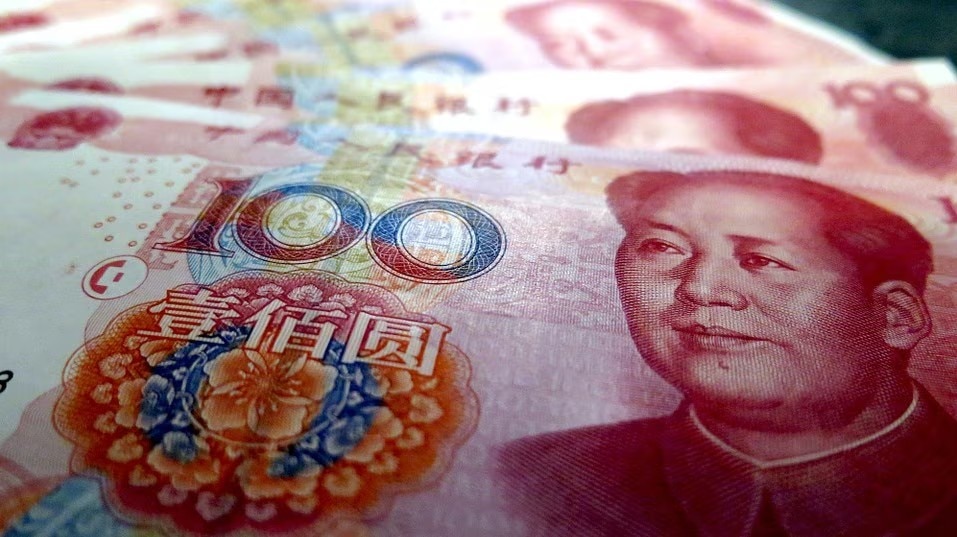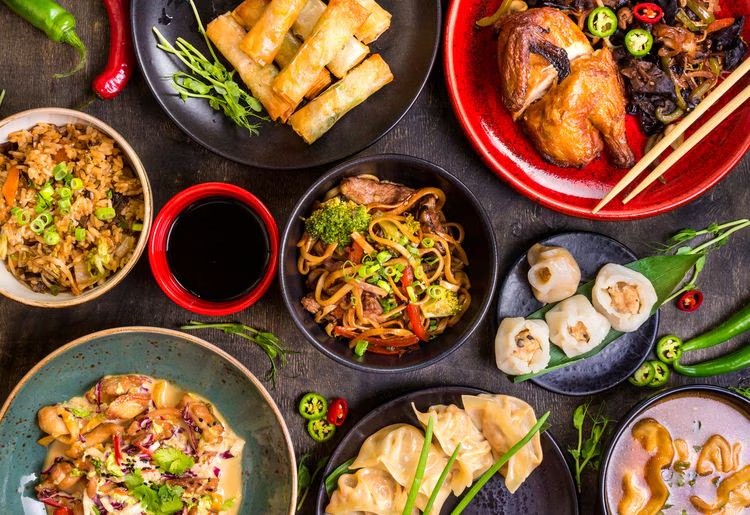-
2026/04/03
Los Angeles(LAX) -
2026/04/07
Shanghai
(Updated: September, 18, 2025 15:03)
China Travel Tips and Information
Official Name
The People's Republic of China
Capital
Beijing
Population
Country Code
About 1.375 billion people
CN
Country Code (international calls)
+86
The flight time to China is approximately 14~15 hours. Check the climate, currency, religion, manners, other information of China below. Wishing you pleasant travels to China.
Located in the eastern part of the Asian continent, along the western coast of the Pacific Ocean, China is a sovereign state. It has an area of approximately 9.6 million square kilometers, making it the third-largest country in the world after Russia and Canada.
Compare Airfares for Flights to China
Compare Airfares for Flights to China
Compare Airfares for Flights to China
Compare Airfares for Flights to China
Compare Airfares for Flights to China
Local Climate / Weather
China experiences diverse climates due to its vast size, ranging from tropical in the south to subarctic in the north. In general: ・Winter (December to February): Cold, especially in northern regions like Beijing and Harbin, where temperatures drop below freezing. Southern cities such as Guangzhou remain mild. ・Spring (March to May): Moderate and pleasant temperatures across most of the country. This is one of the best seasons for travel, with blooming flowers and fewer tourists. ・Summer (June to August): Hot and humid in most parts of China, especially in cities like Shanghai and Hong Kong. Typhoons may occur in coastal areas. ・Autumn (September to November): Cool, dry, and ideal for travel, with comfortable temperatures and beautiful fall foliage, especially in regions like Beijing and the Yellow Mountains.
Currency & Tipping
Currency
In China, the official currency is the Renminbi (RMB), commonly known as the Yuan (CNY). It's advisable for travelers to familiarize themselves with the exchange rate before their trip. ATMs are widely available in urban areas, and major credit cards are accepted in hotels, restaurants, and larger stores. However, for smaller establishments or rural areas, cash is still preferred. Make sure to carry enough cash for smaller purchases, and plan ahead by using digital payment options such as Alipay or WeChat Pay, which are becoming more widely used across the country.
Tipping
Tipping is not a common practice in China. It is neither expected nor customary in most places, including restaurants, taxis, and hotels. High-end hotels or tour guides may accept tips, but it is not obligatory. Travelers should note this cultural difference to avoid any confusion during their visit.
Useful Travel Information

Voltage & Electrical Outlets
China uses a 220V voltage with a frequency of 50Hz. The common plug types are Type A, C, and I, so it’s advisable to bring a universal adapter.

Internet Connectivity
Wi-Fi is widely available in hotels, cafes, and public areas, though access to certain websites and social media (e.g., Facebook, Google) is restricted due to the "Great Firewall." Consider downloading a VPN before your trip for unrestricted browsing.
Water for Consumption (Drinking Water)
Tap water in China is generally not safe for drinking. It is recommended to drink bottled or boiled water, which is widely available throughout the country.
Culture, Religion & Social Etiquette
Culture
China’s culture is deeply influenced by Confucianism, emphasizing family values, respect for elders, and social harmony. Festivals like the Chinese New Year and the Mid-Autumn Festival are celebrated with rich traditions, food, and vibrant performances. Martial arts, tea culture, and calligraphy are key aspects of Chinese cultural heritage. For travelers, experiencing these traditions offers a deeper understanding of China's rich history.
Religion
While China is officially secular, it is home to a variety of religious beliefs. The main religions practiced are Buddhism, Taoism, and Confucianism, alongside a growing Christian community. Travelers may encounter temples and religious ceremonies, especially in culturally significant cities like Beijing and Xi’an.
Social Etiquette
Respect and modesty are highly valued in Chinese society. It is customary to greet with a slight bow or nod and to use both hands when giving or receiving items. Travelers should be mindful of personal space, avoid loud conversations in public, and remember that punctuality is a sign of respect. When dining, it’s polite to wait for the host to start eating and never stick chopsticks upright in a bowl of rice, as it symbolizes death.
Food Culture
Chinese cuisine is one of the richest and most diverse food cultures in the world, offering a wide range of flavors, cooking styles, and regional specialties. For travelers, experiencing the authentic tastes of China is a must when visiting the country. Chinese cuisine is deeply rooted in history, with a focus on balance, freshness, and variety. Popular dishes such as Peking duck, sweet and sour pork, dim sum, and hotpot are favorites among locals and visitors alike. In northern China, wheat-based foods like dumplings and noodles are common, while rice is a staple in southern regions. Street food is an essential part of the culinary experience in China, providing a unique opportunity to sample local flavors. Night markets are bustling with stalls offering snacks such as jianbing (Chinese crepes), chuan (skewered meats), baozi (steamed buns), and stinky tofu. These vibrant street food scenes can be found in cities like Beijing, Shanghai, and Chengdu, allowing travelers to explore a wide array of flavors on a budget. When looking for local restaurants, travelers can find traditional and modern dining options throughout the country. Popular restaurants like Quanjude in Beijing are renowned for their Peking duck, while Din Tai Fung, with multiple locations across China, is famous for its delicate xiaolongbao (soup dumplings). In Shanghai, travelers can enjoy the local specialty, "xiaolong tang bao," a large soup-filled bun, at Jia Jia Tang Bao. For those who want to delve deeper into the regional cuisine, Sichuan is known for its spicy and flavorful dishes, such as mapo tofu and kung pao chicken. A visit to Chengdu can introduce travelers to authentic Sichuan hotpot and other fiery delights. Meanwhile, Guangdong's Cantonese cuisine emphasizes fresh ingredients and light, delicate flavors, perfect for travelers seeking dim sum and steamed dishes. Overall, the food culture in China is a feast for the senses, with countless opportunities to indulge in street food, traditional meals, and modern interpretations of classic dishes. Travelers can look forward to exploring diverse tastes, from simple street snacks to gourmet dining experiences in every corner of China.
Major Tourist Attractions & UNESCO World Heritage Sites
Major Tourist Attractions
Famous major tourist attractions in China include the Badaling section of the Great Wall, the Bund (Wai Tan), the Palace Museum (Forbidden City), Tiananmen Square, and the Shanghai World Financial Center. Other highlights include the Museum of the Terracotta Warriors and Horses at the Mausoleum of the First Qin Emperor, Beijing Zoo—the country's oldest and largest zoo—and the Shanghai Museum, among many other enjoyable attractions.
UNESCO World Heritage Sites
China, a country rich in history and culture, offers a wealth of iconic landmarks and UNESCO World Heritage Sites that attract travelers from around the world. For tourists, visiting these destinations can provide an unforgettable experience of China's ancient and modern wonders.
Travel FAQs
What are the major cities in China?
Based on the permanent population announced by the National Bureau of Statistics of China, mega cities include Shanghai, Beijing, Chongqing, Guangzhou, Shenzhen, Tianjin, and Chengdu.
How safe is it to travel in China, and what should I be aware of?
Tourists might encounter petty crimes like taxi overcharging, aggressive soliciting at tourist sites, or pickpocketing when walking alone at night. It's important to stay vigilant.
Is smoking allowed in China?
In key cities such as Beijing, Shanghai, and Shenzhen, indoor public spaces, workplaces, public transport, hotels, and even restaurants with a roof are strictly non-smoking zones.
Is English widely spoken in China?
Outside major tourist spots in large cities and four- or five-star hotels, English are not commonly understood.




